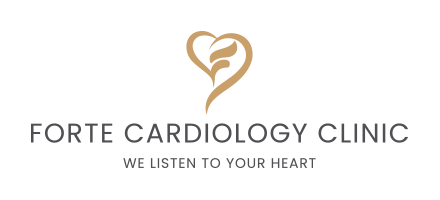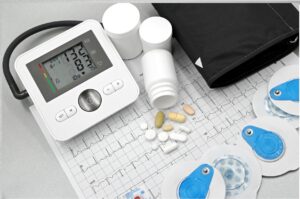Key Pointers:
- Ischemic heart disease (IHD) is not just linked to cholesterol or smoking.
- Stress, poor sleep, and inactivity are modern contributors to heart risk.
- Everyday habits can quietly increase your chances of developing IHD.
- Small lifestyle adjustments can support better heart health.
- Seeking timely medical advice helps in early detection and management.
Why lifestyle matters more than we think
When most people think about ischemic heart disease (IHD), they picture clogged arteries from high cholesterol or the long-term effects of smoking. While these remain important, modern life has added a new layer of risks. Constant stress at work, too little sleep, and hours spent sitting in front of a screen are now part of the story.
These lifestyle factors may not feel as obvious as a pack of cigarettes or an unhealthy diet, but over time they can strain the heart just the same.
Stress: the silent driver
Stress is often brushed aside as “part of the job” or “just life,” but its effects on the body are very real. Chronic stress can raise blood pressure and increase the production of stress hormones, both of which put extra load on the heart.
In a city where productivity and deadlines take centre stage, it’s easy to normalise stress. But the truth is, staying in a constant state of tension can create the conditions for IHD to develop.
The problem with poor sleep
Sleep is when the body repairs itself, and that includes the heart. Consistently getting less than the recommended hours of rest can raise the risk of high blood pressure, obesity, and type 2 diabetes, all linked to IHD.
Many people sacrifice sleep for work, entertainment, or late-night scrolling, without realising the toll it takes on heart health. Even small steps, like keeping regular sleep hours and reducing screen time before bed, can make a difference.
Sedentary habits sneak up on us
You might think you’re safe because you’re not overweight or you jog once in a while. But the hours spent sitting, at the office, in traffic, or on the couch, still count. Prolonged inactivity slows circulation, weakens muscles that support the heart, and increases the risk of developing plaque in the arteries.
Regular movement, even simple stretches or short walks during the day, helps to offset the risks of a sedentary routine.
Early symptoms to pay attention to
Sometimes IHD develops quietly, but there are warning signs worth noting. These symptoms may come and go, and they don’t always appear in the same way for everyone:
- Chest discomfort or pressure, especially during activity or stress
- Pain that spreads to the arm, neck, jaw, or back
- Shortness of breath even with mild exertion
- Unexplained fatigue or reduced stamina
- Lightheadedness or dizziness
- Cold sweats without obvious cause
Not everyone experiences chest pain, sometimes the signs are more subtle. If any of these symptoms occur repeatedly, it’s important not to ignore them.
The bigger picture: combining old and new risks
The modern risks of stress, poor sleep, and inactivity don’t cancel out traditional ones like smoking, high cholesterol, or diabetes, they add to them. That’s why many people are surprised when IHD shows up, even if they consider themselves generally “healthy.” It’s often the combination of visible and invisible risks working together over time.
Taking steps before it’s too late
The good news is that lifestyle-related risks can be modified. Stress can be managed with mindfulness or relaxation techniques. Better sleep hygiene can be practised. Movement can be integrated into daily routines without needing a gym membership.
But lifestyle adjustments are only part of the picture. Screening tests and consultations provide clearer insight into your heart’s condition and help detect problems early, even before symptoms appear.
Key Pointers Recap:
- Modern life brings unique risks for IHD: stress, poor sleep, and inactivity.
- These risks can quietly add up, even for people who look “healthy.”
- Managing stress, improving sleep, and moving more can support heart health.
- Early detection through screening remains important.
- Small consistent changes matter more than drastic short-term fixes.
Take the Next Step for Your Heart
At Forte Cardiology Clinic, we support patients in understanding and managing heart health at every stage. Dr Yong Thon Hon, Senior Consultant Cardiologist, provides consultations and diagnostic investigations to help identify conditions like ischemic heart disease early.
📍 3 Mount Elizabeth, #13-14, Singapore 228510
📞 +65 6322 7820 | +65 9772 4922
👉 Book an appointment today








